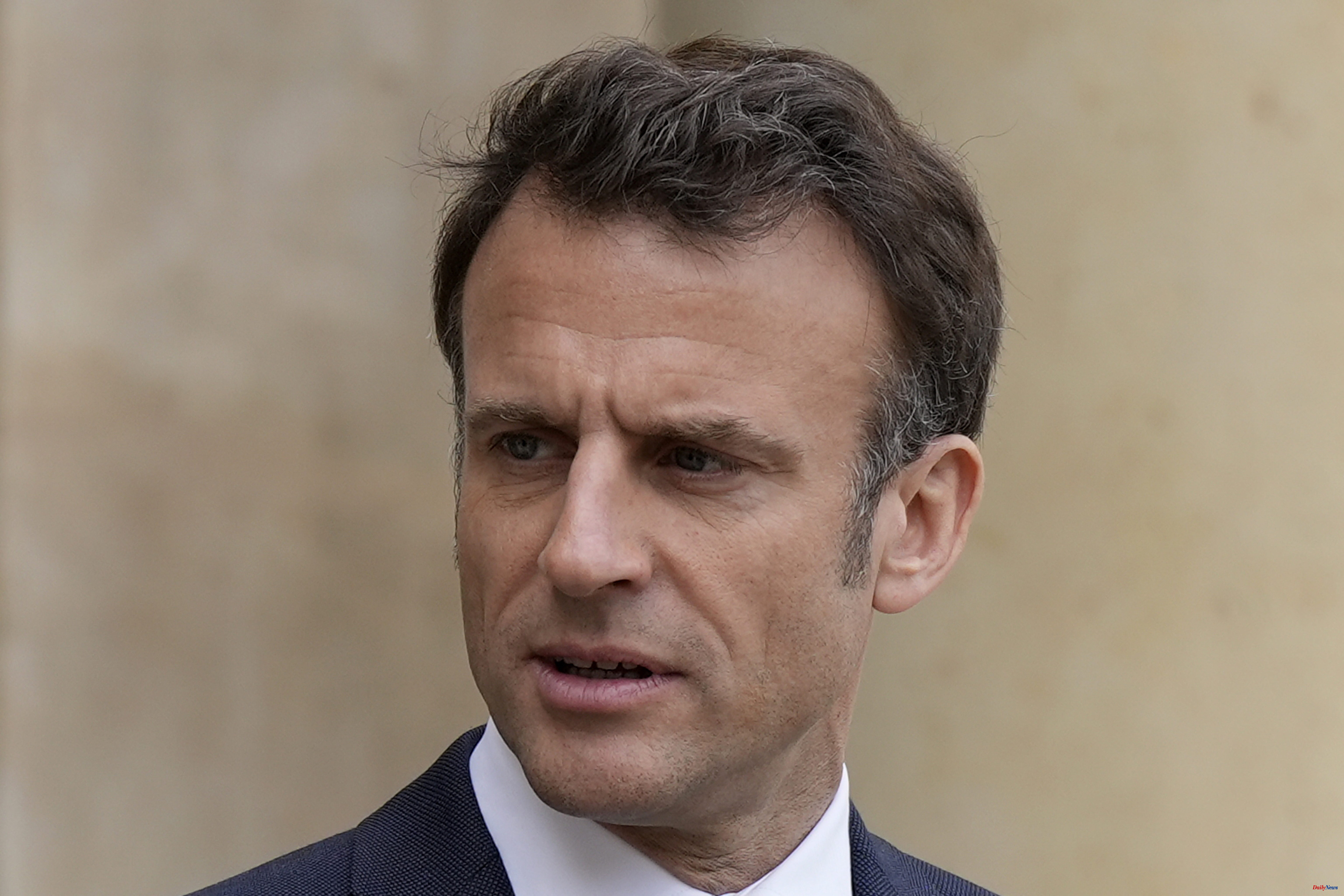French President Emmanuel Macron has signed into law the unpopular pension reform law that delays the retirement age, just hours after the Constitutional Council gave its go-ahead to the law and after a night of incidents across France, in response to the council's verdict.
The law was promulgated this morning, as published in the Official Gazette this Saturday. The French presidency had already indicated that it would be done in 48 hours, despite the fact that the unions had asked it not to. Despite the opposition of 70% of citizens, the law will enter into force on September 1.
He arrives after a night of incidents and protests, in response to the council's verdict. Several groups of protesters gathered in the Bastille square in Paris amid a strong police force and there were also moments of tension in other French cities such as Rennes, Lyon or Nantes.
In Rennes the door of a police station caught fire. The night left more than a hundred detainees. The Ministry of the Interior fears new overflows this Saturday with spontaneous, unauthorized demonstrations.
The left has accused Macron of "contempt" for citizens by promulgating the law so soon. "This hasty publication is a contempt for the movement against the law," said the leader of the Socialist Party, Olivier Faure. "Like thieves, Macron and his gang have enacted the law in the middle of the night," François Ruffin of La France Insumisa said on Twitter. Macron had planned to visit the works at Notre Dame Cathedral today on the fourth anniversary of the fire, but he brought the visit forward to yesterday.
The Constitutional Council had validated a few hours before the key measures of the reform promoted by Macron. This wise council, which had the last word on the law, chose to censor some secondary articles, but not the most important and unpopular one, the one that delays the retirement age from 62 to 64 and extends the requirement of years of contributions to collect a full pension.
It only censored six secondary articles (out of a total of 36) because they consider that they do not fit into a financial law like this. These are precisely the most social articles, those that did not generate so much rejection, focused on encouraging the hiring of people over 60 years of age.
The Council, which is the equivalent of the Constitutional Court in Spain, also decided not to accept the proposal of the left to hold a referendum to set the retirement age at 62 years. Two proposals were presented: one of them has been rejected and the second (which was formalized this Thursday) will be decided on May 3.
The authorities feared that the passage of the law would increase anger in the streets. The headquarters of the Council has been armored since Thursday and until today demonstrations in the surroundings have been prohibited.
With the enactment, one of the most controversial laws, which has undergone a tortuous process, comes to an end. There have been three months of protests, with twelve days of general strike called by unions united for the first time in a decade. Macron's popularity is at an all-time low. This is the key reform of the president's second term, who has always justified the need for the law to be able to balance the pension piggy bank and prevent it from going into deficit already this year.
According to the criteria of The Trust Project












